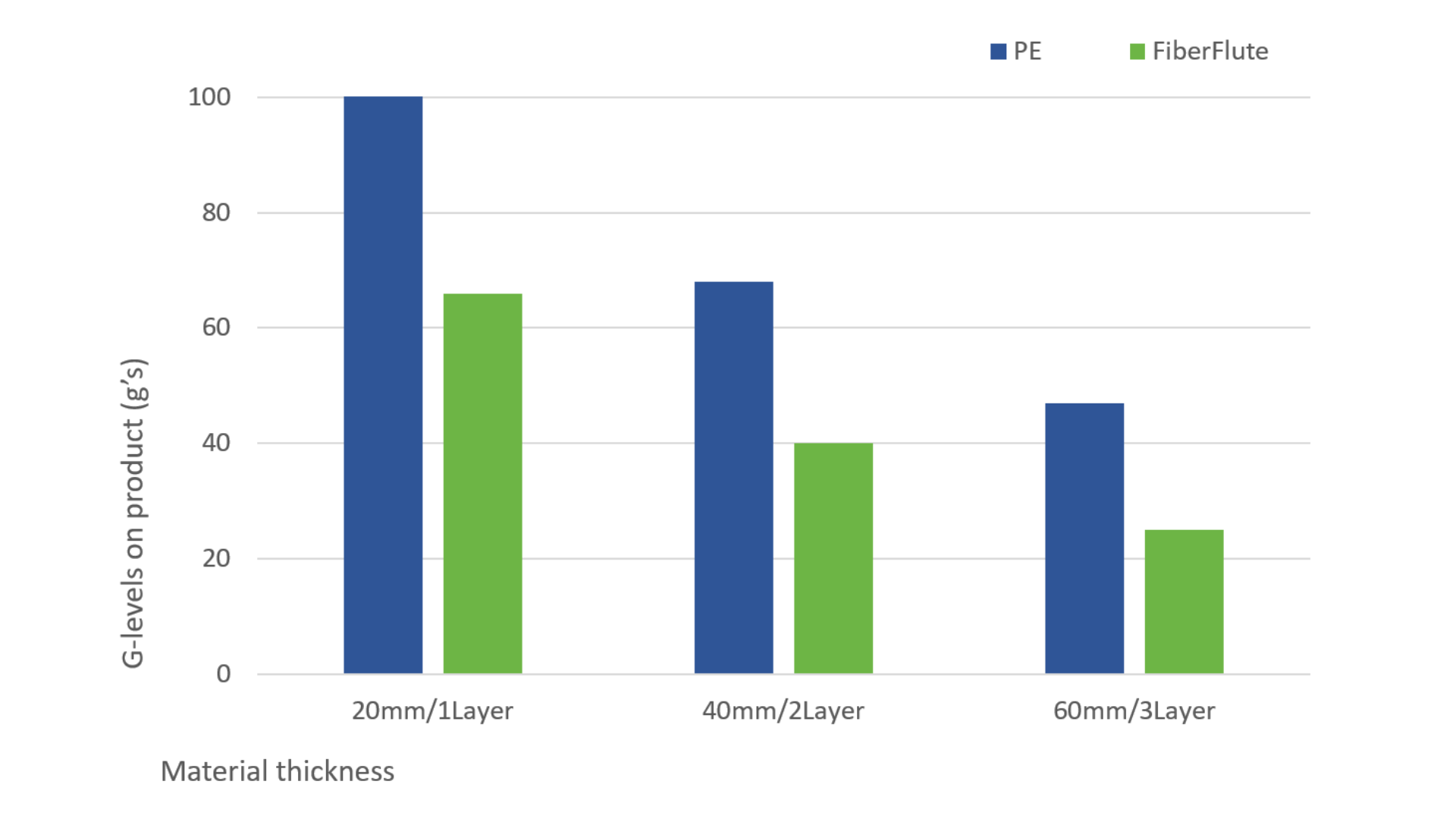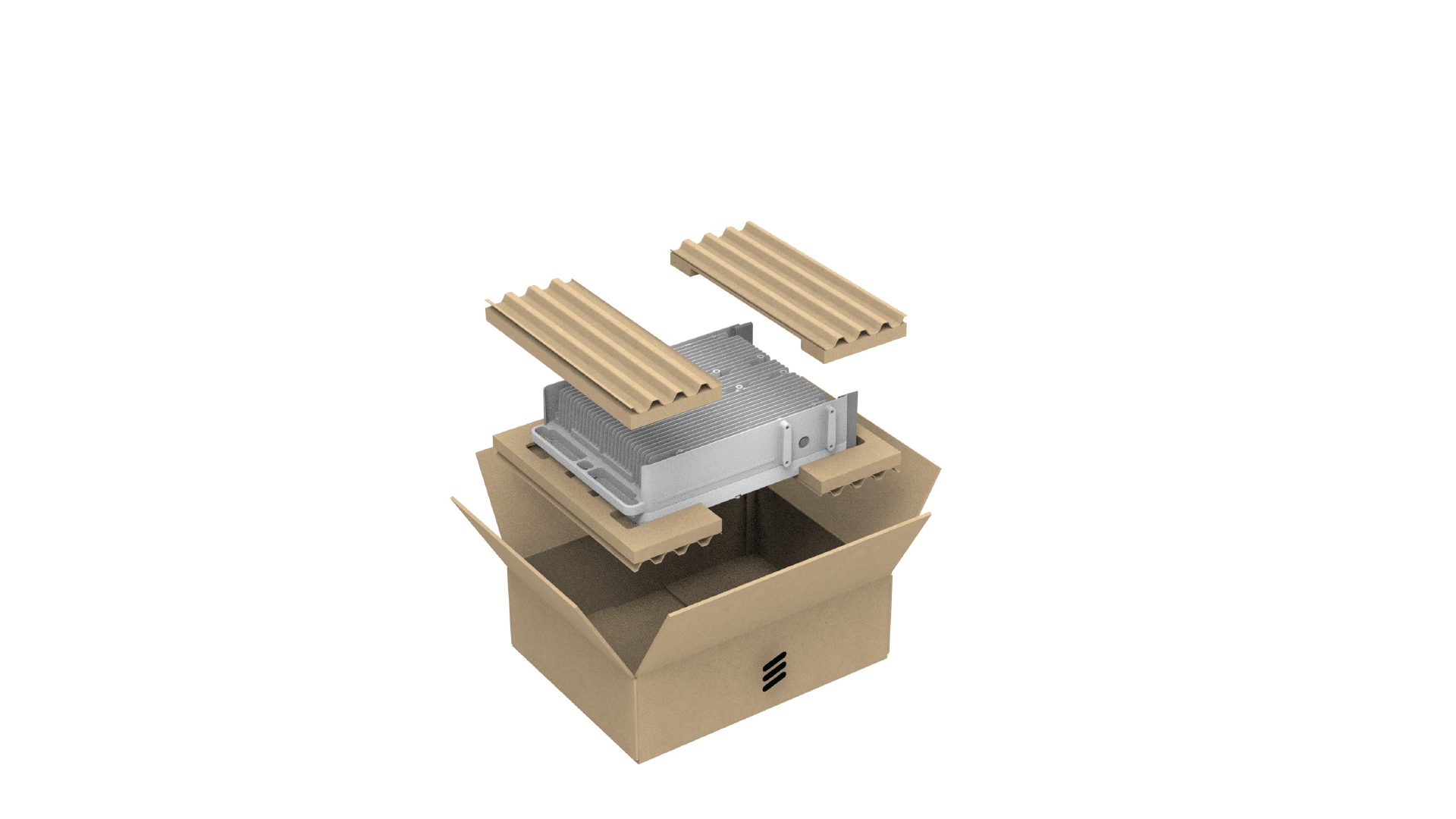Celosvětová snaha o eliminaci plastového odpadu, zejména z obalů, se výrazně prosadila, neboť plasty tvoří přibližně 36 % všech materiálů používaných v obalech. 1. Bohužel přibližně 85 % těchto plastů končí na skládkách nebo jako neregulovaný odpad.2. Mnoho jednorázových plastových obalů není určeno k recyklaci, což vede k tomu, že ze sedmi miliard tun plastového odpadu vyprodukovaného na celém světě se znovu použije méně než 10 %.3. V reakci na to se spotřebitelé a společnosti obracejí k alternativním materiálům, které jsou považovány za udržitelnější. Přechod na alternativní obaly, zejména pro těžká nebo křehká telekomunikační zařízení, je však složitý úkol. Vyžaduje inovativní řešení, která dokáží ochránit výrobky během přepravy a zároveň splňují cíle udržitelnosti.
V telekomunikačním průmyslu, kde je připojení nezbytné, se zařízení často instalují na vzdálených a náročných místech, jako jsou horské vrcholy, lesy a pouště. S rozšiřováním síťové infrastruktury do těchto oblastí roste poptávka po odolných, biologicky odbouratelných obalech, které vydrží zátěž při přepravě, aniž by poškozovaly životní prostředí. Obaly musí nejen chránit zařízení, ale musí být také navrženy s ohledem na konec životnosti a musí zajistit, aby byly buď recyklovatelné v rámci místních toků odpadu, nebo zcela biologicky rozložitelné, zejména v regionech, kde jsou možnosti likvidace odpadu omezené. Jak můžeme přejít na inovativní alternativy primárního plastu, které jsou odolné a zároveň šetrné k životnímu prostředí?
Inovativní design obalů
Eliminace primárních plastových obalů z dodavatelských řetězců telekomunikací vyžaduje přechod na inovativní, plně recyklovatelné materiály. Tato transformace do značné míry závisí na odborných znalostech obalových inženýrů, kteří navrhují a testují nová řešení, jež splňují normy odpovědnosti vůči životnímu prostředí a zároveň zajišťují ochranu stále choulostivějších telekomunikačních zařízení. Přechod na alternativní obaly, zejména pro těžkou nebo křehkou elektroniku, je složitý proces. Obaly musí být dostatečně odolné, aby vydržely náročnou přepravu z výrobních závodů do vzdálených míst instalace, a zároveň musí být šetrné k životnímu prostředí. Takové nové materiály procházejí přísným testováním, aby bylo zajištěno, že dokáží ochránit citlivá zařízení během přepravy. V dnešním globálním dodavatelském řetězci je také důležité zajistit, aby nové obalové materiály byly snadno dostupné po celém světě.
Pochopení toho, co se děje s obalovými materiály po jejich použití, je pro budování udržitelné budoucnosti zásadní. Recyklace nejen pomáhá minimalizovat množství odpadu, ale také šetří suroviny a energii, čímž snižuje celkový dopad na životní prostředí. Obaly, které jsou navrženy tak, aby je bylo možné recyklovat, zajišťují, že cenné zdroje mohou být znovu zařazeny do dodavatelského řetězce, místo aby skončily na skládkách. Recyklace navíc snižuje poptávku po primárních materiálech, čímž se snižují emise uhlíku spojené s těžbou a výrobními procesy. Upřednostňováním biologicky rozložitelných, recyklovatelných nebo opakovaně použitelných obalů společnosti nejen splňují rostoucí požadavky právních předpisů, ale také se přizpůsobují očekáváním spotřebitelů, kteří požadují ekologicky odpovědnější řešení. To zase podporuje oběhové hospodářství, v němž jsou materiály neustále znovu využívány, což přispívá k udržitelnosti i nákladové efektivitě.

Srovnávací analýza PE pěny (30 kg/m³) a FiberFlute společnosti Nefab ukázala, že FiberFlute má o 40-45 % nižší hodnoty G. To naznačuje, že k dosažení stejné úrovně ochrany výrobků je u FiberFlute potřeba méně materiálu než u PE pěny.
Udržitelné řešení na bázi vláken
V odvětví telekomunikací, kde se zařízení často přepravují na vzdálená a těžko dostupná místa, jako jsou vrcholky hor nebo izolované antény, musí být obaly buď plně recyklovatelné v dostupném toku odpadu, nebo zcela biologicky rozložitelné. Řešení na bázi vláken lze efektivně zpracovat v dostupných odpadních tocích, a to i v oblastech s omezenými možnostmi likvidace. Proto jsou účinnou alternativou k jednorázovým plastům. Využitím přirozené pevnosti čerstvých i recyklovaných vláken poskytují tyto materiály odolnou ochranu a zároveň minimalizují využívání přírodních zdrojů. Čerstvá vlákna nabízejí vynikající pevnost, takže jsou ideální pro náročné dodavatelské řetězce, například při přepravě těžkých telekomunikačních zařízení do zahraničí. Nižší hmotnost obalů na bázi vláken snižuje dopad na životní prostředí a celkové náklady, zejména při letecké přepravě, kde je hmotnost rozhodujícím faktorem.
Ukázkovým příkladem výhod řešení na bázi vláken je společnost Ericsson, která přešla od jednorázových plastů k plně recyklovatelným obalovým vložkám na bázi vláken pro své jednotky Remote Radio. 4. Tyto vložky obsahují povrchovou úpravu proti oděru, která chrání výrobek během přepravy, aniž by bylo nutné používat další plastové sáčky. Díky schopnosti odolat zatížení až 36 kg si obaly na bázi vláken společnosti Ericsson zachovaly ochranu, kvalitu a funkčnost výrobku a zároveň výrazně snížily obsah plastů z 20 % na méně než 1 %. Navíc se podařilo zmenšit velikost obalu o 15-20 %, což dále snížilo dopad na životní prostředí a náklady. Tento posun je v souladu s misí společnosti Ericsson Net Zero a ukazuje, jak mohou řešení na bázi vláken podpořit udržitelnost i provozní efektivitu v telekomunikačním dodavatelském řetězci.

Přechodem na obalové materiály na bázi vláken jsou produkty Ericsson Remote Radio plně recyklovatelné a snižují celkový obsah plastů z 20 % na méně než 1 %. (Zdroj: Ericsson)
Propojenější a udržitelnější budoucnost
Snaha o eliminaci plastového odpadu v obalech mění průmyslová odvětví po celém světě a telekomunikační sektor není výjimkou. S rostoucí poptávkou po ekologicky odpovědných řešeních představuje přechod od jednorázových plastů k obalům na bázi vláken slibnou cestu vpřed. Přijetím inovativních, recyklovatelných a biologicky odbouratelných materiálů mohou telekomunikační společnosti výrazně snížit svou ekologickou stopu a zároveň zajistit spolehlivou ochranu citlivých zařízení. Úspěch řešení na bázi vláken poukazuje na potenciál udržitelných obalů, které splňují jak provozní, tak environmentální cíle. Vzhledem k tomu, že se odvětví nadále potýká s výzvami vzdálených instalací a přísnými cíli udržitelnosti, bude přijetí pokročilých obalových řešení klíčové pro dosažení ekologičtější a efektivnější budoucnosti.